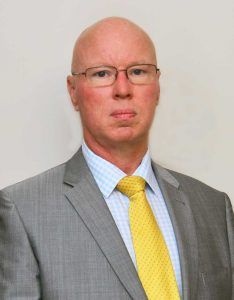One of the key indicators through which we measure and calculate Country Risk is the ability of a jurisdiction to protect foreign investment, and to obtain justice for the victims, when financial crime occurs, meaning the prudent use of civil and criminal proceedings, both to punish those who break the law, and to recover the investments lost through crime. When a government repeatedly fails to protect those who make substantial monetary investments in the jurisdiction, there can be no confidence in further investment, and it is discouraged by raising the level of Country Risk to a point where any financial exposure is not only dangerous, the risk as stated rules out any further financial activities whatsoever, and existing holdings are to be terminated forthwith.
One year ago, victims of the financial criminals who are now known as the Cayman Gang of Four presented evidence and testimony to the Cayman Islands Monetary Authority [CIMA], and to the Royal Cayman Islands Police Service (RCIPS). to date, there have not only been no arrests made, nor any civil or regulatory proceedings commenced, but targets of the investigation have not been interviewed, nor evidence sought. All queries are fielded with the assurance that the matter is under investigation, but there is ample anecdotal evidence that no work has been done for months, in either agency.
In truth and in fact, the majority of opinions, taken from experienced financial professionals resident on Grand Cayman, confirm that they believe the leadership of both government agencies is not interested in pursuing the Cayman Gang of Four matter, due to the negative publicity which will, necessarily, be generated from a case which, by CIMA'a own estimate, involves the theft of over USD$450m, the fraudulent use of an unlicensed "bank," the laundering of, and unauthorized transfer of, many millions of dollars, from shell companies, through Caymanian banks, to other offshore financial centers, by known fraudsters and criminals. Cayman fears the consequences of a huge financial scandal.
This case is said to be the thirteenth such financial scandal, of recent memory, in the Cayman Islands, none of which reportedly resulted in any foreign investor, bank client, or fund client, recovering any of his money, demonstrating a flawed system, that favors Caymanians over foreign investors, so as not to affect the status quo in, and reputation of, the jurisdiction, as a safe offshore financial center. Unfortunately, the fact that Cayman is a British Overseas Territory, does not guarantee that local government will act to protect those individuals who place their wealth there.
For the above reasons, I have raised Country Risk for the Cayman Islands to the highest possible level, to the plateau where no investment can be recommended as safe, and a strict warning to avoid all future contact with Cayman financial institutions, corporations, and financial service firms, as losses due to crime cannot be recovered.
If you are looking to determine where to fix responsibility for the inaction of these government agencies in enforcing the law, I humbly suggest you ask the Managing Director of CIMA, Mrs. Cindy Scotland, and the Detective Superintendent of the Royal Cayman Islands Police Service, Peter Landsdown, who supervises the Financial Crimes Unit, why no arrests have been made in the Cayman Gang of Four scandal.









